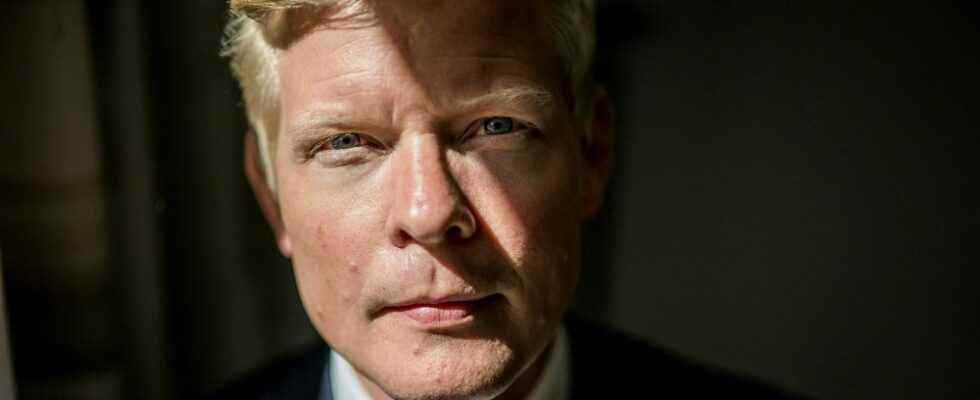Hans Grundberg is 45 years old. Despite his relative youth, he is the image of the Typical Swedish Official: correct in dress and appearance, hard-working and punctual. In September last year, he took over the job as the UN Special Envoy for Yemen. Before him, three of the world organization’s most experienced conflict resolution agents had tried to reverse the negative development in Yemen. They had all given up, frustrated by the lack of progress.
But in less than nine months Hans Grundberg has implemented a series of concrete measures that together provide at least a streak of peace hope for Yemen’s war-weary population:
● Since April 2, there has been a temporary ceasefire. The agreement was valid for two months and was extended last week by another two months. Although not all weapons have been completely silenced, the fighting as a whole has decreased significantly.
● Ships with oil and petrol have once again been able to dock in the Huthi-controlled port city of Hodeidah. This has made life a little easier for the civilian population in northern Yemen.
● The international airport in the capital Sanaa, also controlled by Huthis, has been opened to traffic after being closed for seven years.
● For the first time since the beginning of the war, military representatives of the two warring parties have held direct talks.
The war in Yemen, between the government side supported by a coalition led by Saudi Arabia and the armed Huthi movement backed by Iran, is now in its eighth year.
During that time, at least 377,000 Yemenis have died in war, battle, or famine and hardship. About 4.5 million have been forced to flee their homes. Child soldiers have been recruited, schools have been bombed and the conflict has occasionally threatened to spread to other countries in the region.
This weekend, Hans Grundberg will be hosting a broad-based conference on Yemen, which will be held in Solna outside Stockholm. 150 participants from, among others, Yemen’s civil society and political sphere meet for three days to discuss future and security issues.
The Folke Bernadotte Academy, an authority under the Ministry of Foreign Affairs that works globally with peace-promoting and conflict prevention initiatives, is hosting, together with a Yemeni think tank, Sanaa Center for Strategic Studies.
How come you have succeeded where your representatives have failed?
– How do you define “to succeed”? We’ve reached a temporary ceasefire, and that’s great. But we must take it further. I really want to emphasize that the job is far from complete.
How did you reach the ceasefire?
– We may have come to a situation where there is fatigue among the warring parties. We have received support from important actors – in the region, but also internationally, in the UN Security Council. And we have worked hard, not just me personally but our entire office.
The UN is often criticized for inaction and for an inability to resolve conflicts. Do you have a method that other conflict solvers can learn something from?
– There are definitely things to learn from how other conflicts have been handled. But at the same time, each conflict has its own dynamics. It’s like that famous quote by Tolstoy: “All happy families are alike, but every unhappy family is unhappy in its own way.”
– We have tried to have as good and trusting a relationship as possible with the parties. Based on that, we are constantly probing for opportunities to reach solutions. We need to understand what they want to achieve, and so we try to find compromise proposals that are possible to agree on.
– The proposal may not fly. Then we listen again, present a new proposal and try to gain power around it. Partly together with the parties, partly with the regional actors and with the international community.
The Huthis are notorious for recruiting child soldiers. And the governing coalition is accused of attacking civilian targets, such as hospitals. How do you handle it?
– The awful thing I encounter becomes an incentive for me to work even harder to end the war.
Facts. Eighth year
In January 2015, the Huthi movement or Ansar al-Allah took over the presidential palace in the Yemeni capital Sanaa. In March of that year, a Saudi-led military alliance began attacking Huthi positions.
Since then, the war has been going on, with dire consequences for the civilian population. At least 377,000 people have been killed in or as a result of the war in Yemen, according to estimates made by the UN at the end of 2021.
The UN has tried with varying degrees of success to mediate between the combatants. In September last year, the Swedish diplomat Hans Grundberg became head of the UN Envoy’s Office OSESGY (Office of the Special Envoy of the Secretary-General for Yemen). The 45-year-old Grundberg was previously the EU’s ambassador to Yemen and has previously worked with Middle East issues within the EU and the Ministry of Foreign Affairs.
Show more
Read more:
Erik Ohlsson: The ceasefire welcomes success for UN diplomacy
That is why Swedish Saab is arming one of the Yemeni war’s main actors
